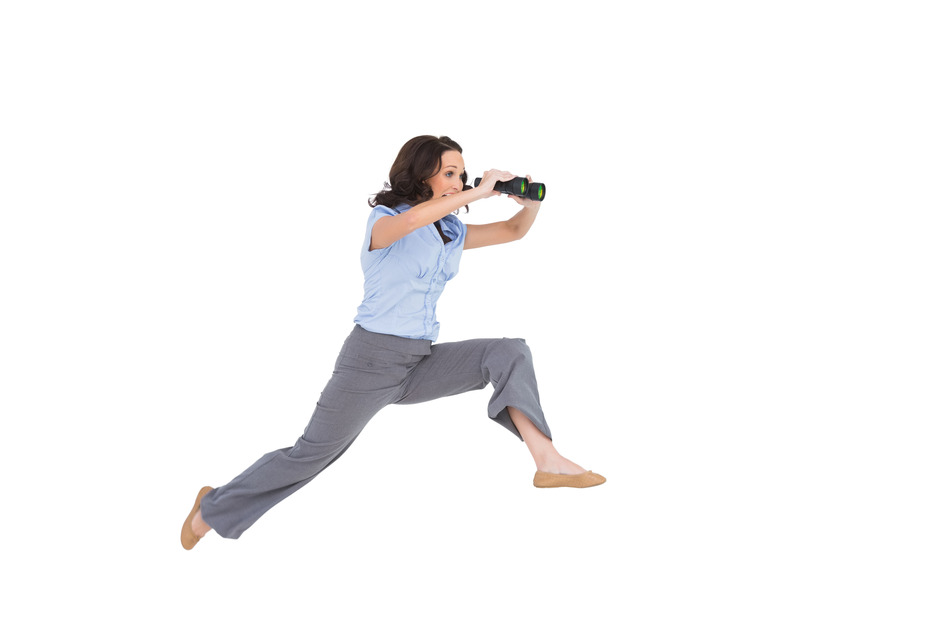I’m not particularly confident. Scratch that. I’m situationally confident: sometimes, very much so; other times, not at all.
So I spend a lot of time thinking about how to gain confidence.
Confidence is quiet. Confidence is a natural expression of ability, expertise, and self-regard.
There’s not a fundraiser or nonprofit leader alive who has never sweated before a big meeting, or procrastinated before making a big call.
What separates those who are successful in this profession is the confidence that they have in themselves and in their organization.
How do you get there, though?
In my experience, confidence comes from having a belief that you’ll figure it out or find a way.
The pitfall is to base your confidence only on your competence. There’s nothing wrong with admitting you don’t know something, but pretending you do when you don’t won’t help your confidence.
I think the most powerful vehicle for confidence comes from within, when it’s a mission or a vision that compels you to march on no matter what.
Why confidence matters with fundraising
Lack of confidence causes our donors and prospects to pause, or wonder. Ouch!
Confidence matters because, as executive directors and board members, we are constantly communicating with donors, volunteers, and supporters. We are the face of our organizations.
When people are less than confident in our conversation, in our manner, or in our ask, they often assume that the reason we are nervous is because we don’t fully believe in what we’re doing.
The Good News
I guarantee you that you possess the confidence you need to do what you want to do. Whatever it is, you already have natural confidence – you’re wired for it. Let’s prove it.
What do you do in your life where the question of whether you can do it or not never arises?
It might be something you do at home (like cooking a great dinner, painting a great picture, laughing with your partner or anything else).
It might be something at work (like taking part in a meeting, writing a report, leading a team or anything else), or
You can make a change happen, start something, finish something, step out of the norm, do something different, clean out the old, bring in the new. (I love that line. I stole it from somewhere.)
You’ve done it before. You can do it again. Now let’s transfer it to fundraising
2 steps to becoming more confident with your fundraising
Confidence is about turning thoughts into action. It’s the natural result of your personal and professional growth.
1. First, play it safe.
Did you know that when you explain something to someone you’re seen as confident?
Pick something about your nonprofit that you know well, and find someone new to explain it to. A staff person, a board member, a friend.
Explain it with the intention of sharing information that the person would find interesting or useful. Do it for them.
Don’t drone on and on with your 901 information when all they want is the 101 version. That’s either showing off or you’re nervousness showing up. Just a simple explanation is good. It’s elegant.
Notice how it’s received. Listen well.
Take time in the moment to notice how you feel.
2. Take a Leap
Think of something that is a part of your job that you have been avoiding.
For example, do you have confidence in your own fundraising abilities?
This one is the toughest to master, but is also the most valuable to your career development.
The criteria of a leap
I learned this from Tara Mohr, author of Playing Big. I’ve written about this before and I write about it again. It’s a powerful tool.
Identify something that will help you develop your fundraising or leadership skills.
It must fit this criteria to qualify as a leap:
- You can say it in 2 or 3 sentences.
- It involves engaging with someone that you want to reach or influence (ie: not read an article or write a plan).
- You can achieve it in a week or two.
- It makes your heart beat faster.
- It answers a question.
Here’s how to identify the question. This may be the most important part of your leap when it comes to building your confidence.
What do I want to learn from this leap? For example: Does Jo have the time and interest to become a board member? If you ask, and she says no, then your question is answered.
It doesn’t mean you’re a failure. You now have information. Data. You can determine if you want to change your approach to inviting people on to the board, or decide to take another leap with a different question. The bottom line – you’re always learning.
Then take another leap. I’m telling you, when you do this, it’s a rush. You may fall down here and there, but pick it back up and you’ll stand taller.
You’ll develop confidence in yourself and your ability to turn thoughts into action. And isn’t that the name of the game?
What is your leap?




Leave A Response